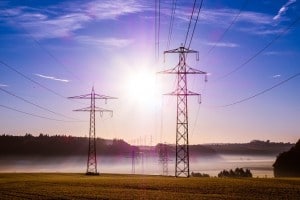 The global population explosion calls for more of everything, including more energy, and this means that our freshwater resources will be stretched even further in the near future, something we really do not need what with global warming and climate change already causing water stress and droughts across the globe.
The global population explosion calls for more of everything, including more energy, and this means that our freshwater resources will be stretched even further in the near future, something we really do not need what with global warming and climate change already causing water stress and droughts across the globe.
A lack of coordination and planning between the energy and water sectors means that we are in trouble, and if something is not done soon we are heading for a global disaster.
In excess of 800 million individuals currently do not have access to an improved water source; around 1.3 billion do not have access to electricity, and in excess of 2.5 billion do not have access to decent sanitation. The overlap between those who do not have access to water and those who do not have access to electricity shows just how closely the power and water sectors are connected.
Currently, global energy production accounts for around 15% of water withdrawal, a figure that is set to rise to approximately 20% by the year 2035 due to urbanisation, population growth, and changing consumption patterns.
These percentages are very worrying, especially seeing that it is believed that around 20% of all aquifers globally are already over-exploited. If governments continue to exploit scarce global water resources to meet energy demands, around 2.3 billion people will be experience severe water stress by 2050.
The human body consists of around 70% water, which is vital to every single cell in our bodies, yet loses water throughout the day via urination, perspiration and various other bodily functions. Because the body cannot store water, we must drink water frequently to maintain that balance and remain hydrated and healthy.
Water is life, and because of this we need to hold our governments, our industry, and ourselves accountable.
Buy water coolers and rent water dispensers from Living-Water.





